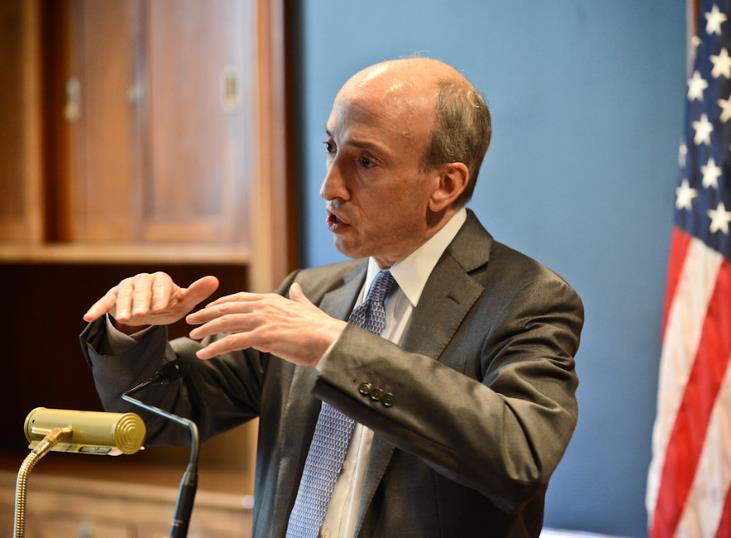US Securities and Exchange Commission (SEC) Chairman Gary Gensler explained why he considers all crypto tokens other than Bitcoin BTC -1.71% to be securities. In an interview, Gensler emphasized that “essentially, these tokens are securities” and that the SEC has all the legal tools needed to regulate the crypto industry.
According to the publication, Gensler believes that virtually all types of crypto transactions fall within the SEC’s jurisdiction, with the exception of bitcoin spot transactions and the actual purchase or sale of goods or services using cryptocurrencies. Entrepreneurs may use legal entities in offshore tax havens to try to avoid the SEC’s influence, Gensler added. They may also first dump the tokens overseas, pretending it takes six months to get back to the US, or the lawyers try to arbitrage and make it difficult in the jurisdiction.
Gensler, however, argues that all non-Bitcoin cryptographic tokens are securities because there is a group in the middle, and public expectations are based on profits from that group. He did not name specific cryptocurrencies, but his views have been criticized by some.
Attorney Jake Chervinsky said that while Gensler may have prejudged that every digital asset other than bitcoin is a security, his view was not in line with the law. Chervinsky emphasized that the SEC has no authority to regulate any of them until it proves its case in court against each asset individually, one at a time.
Another attorney, Logan Bolinger, also said that judges, not the SEC chairman, ultimately decide what the law means and how it applies. Bolinger added that Gensler’s ideas are not trivial, but they are not conclusive.
Gensler has long been known for his strict stance on cryptocurrencies. He previously taught courses on blockchain technology and cryptocurrencies at the Massachusetts Institute of Technology (MIT). During his confirmation hearing last year, he said he would focus on ensuring that the cryptocurrency market is free of fraud and manipulation.
Last month, the SEC charged three people with allegedly defrauding investors of $11 million through an unregistered initial coin offering (ICO). The SEC complaint alleges that the trio used false statements to lure investors into buying their digital assets, which they promised would be backed by gold.
In another case, the SEC charged Zachary Coburn, founder of decentralized exchange EtherDelta, with operating an unregistered stock exchange. The regulator claimed that Coburn violated the law by allowing users to trade tokens that are considered securities under U.S. law.
The SEC has been actively monitoring the crypto market and fighting fraudulent activity. In 2018, the regulator established a dedicated unit, the Innovation and Financial Technology Strategy Hub (FinHub), to help fintech companies navigate the SEC’s regulatory environment.






